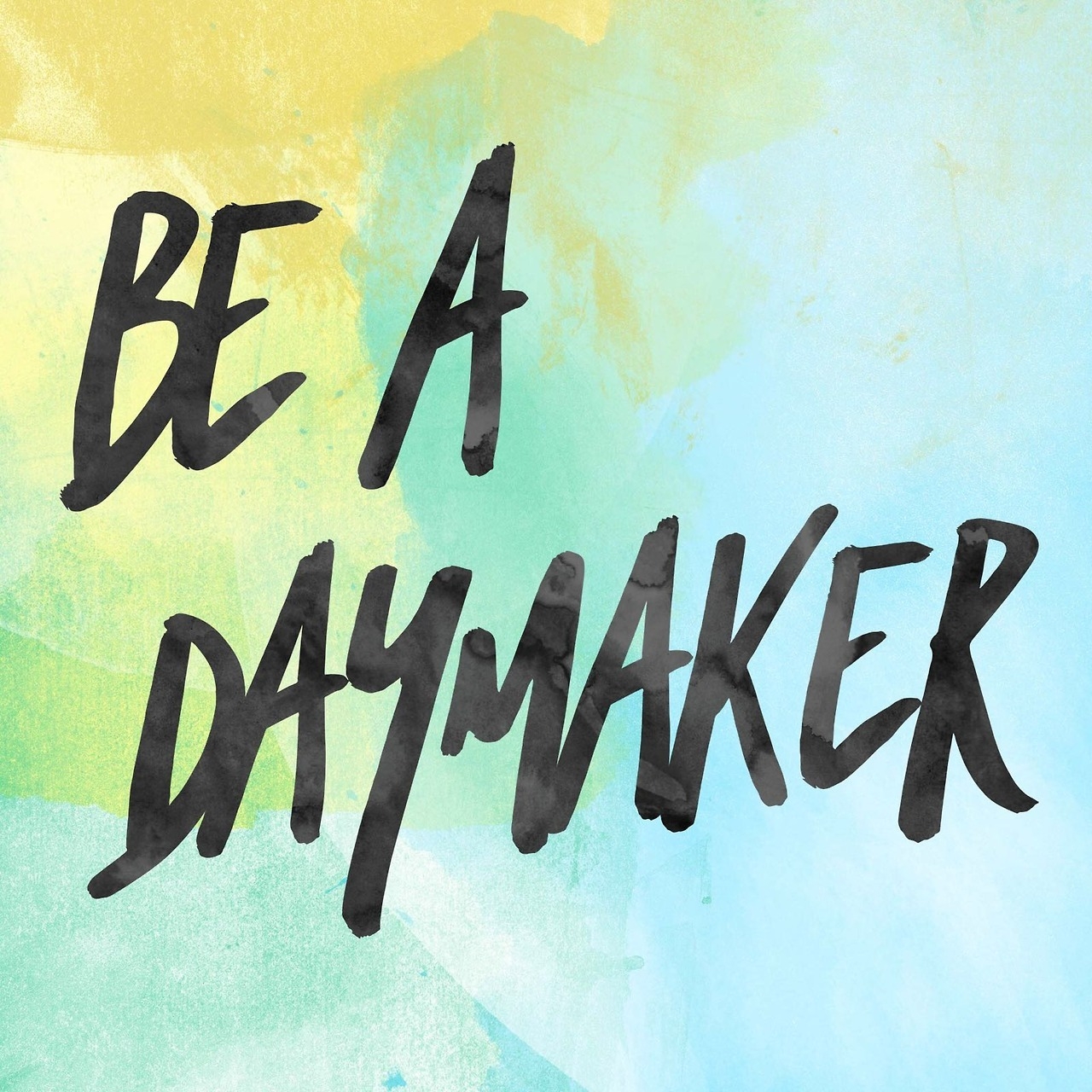How to Be More Confident At Work, School and Speaking
 |
| How to be more confident. Photo: KnowInsiders.com |
| Contents |
"Confidence is a measure of our faith in our own abilities," says Tess Brigham, MFT, BCC, a psychotherapist, career and certified life coach, and public speaker.
Confidence is something that can be worked on by anyone, at any age. Confidence can be really annoying. Sometimes you seem to have what you need, and other times you don't. Yet it can feel out of reach just when you need it the most.
Several research have identified a correlation between self-assurance and career advancement, but one intriguing pilot study from the University of Melbourne reveals a link between early self-assurance and later professional success. A different study found that telling pupils to "strive for greater standards" was less effective than telling them they had confidence in their abilities.
How to become more confident in everyday life?
1. Start Small
"The more you do something and the more experience you get, the more confident you'll become; and the more confident you become, the more you'll be able to take action," Brigham says. "Starting out is always the hardest part, so always create goals that are small and doable. You want to create actionable steps you know you can accomplish because it'll help you create forward momentum."
Start by engaging in activities where you already have confidence in your abilities, suggests Sherry Benton, PhD, ABPP, a psychologist and the founder and chief science officer of TAO Connect. "This puts you in a thought pattern called 'flow,' where self-consciousness disappears and you're completely absorbed. Find something that puts you in the zone and gives you a sense of pride in your accomplishments."
2. Practice joining a conversation
 |
| Photo: Explore the Bible |
While listening intently to a group’s conversation from afar is kinda creepy, if you overhear a topic of interest don’t be afraid to “eaves-jump” into the conversation.
And what is eaves-jumping exactly? It’s a word we made up. But basically, it’s just like eavesdropping, except instead of dropping it and walking away, you jump in and join the conversation.
Now we know what you’re thinking: That seems like it requires a lot of confidence. And... you’d be right, but the truth is, it’s also a lot easier than you think. As long as you don’t hesitate, jump in on the right topic and make sure to talk to the entire group, you will undeniably look and feel like the most confident guy in the room.
3. Set the scene
The first thing to say is that there are no guarantees here. Sometimes it just isn’t meant to be. Sometimes the girl you have picked really is ‘deadly’. But you have to have the confidence to try. And to give you the best possible chance of success, you have to get the scene right.
Try to make sure you are in the right place at the right time. Trying to strike up a conversation when you are dancing right by the speakers is unlikely to work; catching her on her way to the toilet is likely to lead to a very short conversation, and interrupting a work social or hen party is also unlikely to be effective.
Just do your thing. Be confident. Be yourself. Don’t overcomplicate it or overthink it, just start talking.
There is no reason why it shouldn’t work. But if it doesn’t, you can walk away thinking to yourself, “well I did everything I could, but it wasn’t meant to be” or perhaps even, “wow, she really was deadly… lucky escape.”
4. Be a Daymaker
 |
| Photo: lulu lawrence - Tumblr |
David Wagner, CEO of Juut Salonspa, often speaks about being a “Daymaker”—not just going through the motions at work, but actively choosing to be a source of positivity and encouragement. Choosing to make someone’s day.
With everything you write—every email, every text, every tweet—you have an opportunity to make someone’s day. (Or not.)
Often, all it takes is a few words of kindness, a thoughtful compliment, or the kind of insightful reminder that leaves people thinking, “Yeah. I needed that.”
Set “Daymaker” as your barometer of success—for your writing, and for everything you do.
Whether your writing is “perfect” or not, your intent will shine through.
5. Identify Your Insecurities
Setting goals is crucial, but defining your fears and insecurities is even more important.
Right now, ask yourself: “What am I embarrassed about or ashamed of? What am I afraid that other people might discover about me?”
Then make a list.
This is a list of your top insecurities. We all have them, so don’t be embarrassed.
However, just making this list will not cause them to magically disappear. But it will help you acknowledge them and accept their reality. If you want to get over them, then I suggest you pick one and share it with a close friend or family member. This will not be easy, but it will help you remove the shame associated with it.
6. Practice Decision-Making
 |
| Photo: SÁCH VÀ CUỘC SỐNG 12 |
If you want to reach true self-confidence, then you must be able to make fast decisions.
Most of us make the mistake of over-thinking and over-analyzing every little choice. This will cause you to lose confidence in yourself, because you’re essentially training yourself to doubt your gut instinct.
Instead, you must build your “decision-making” muscle. You must practice making decisions on a daily basis. Here are a few simple ways you can get started:
* When you eat out, select your meal off the menu in 30 seconds or less
* When you are getting dressed, select your outfit in 1 minute or less
* When you make plans with a friend, always be the one who makes a suggestion of what you should do
These steps will program your mind to make faster choices when you’re facing more significant decisions.
7. Non-Evasive Eye Contact
As awkward as it may seem at first, confident people always remember to keep eye contact. They just don’t worry about it. All too often, men tend to get anxious and look away from a woman when she’s talking... or do the same when they are speaking to her.
Not only will remembering to maintain eye contact make you look more confident, but it also tends to create a genuine connection with the girl, which as you’ll find out... is what really boosts your self-confidence.
8. Use fragrances
 |
| Photo: Birchbox |
Imagine that you are at the party and you just saw the most beautiful girl in the world, she just passes you. You will remember her body shape, maybe hair and face. When you walk up from bed the next day with a hangover you will definitely remember her smell. Why? Because a sense of smell is one of the most sensitive senses.
When you apply a really good fragrance not only people around you will smell it, also you will feel it’s vibe in the air. A well-chosen fragrance will be your secret confidence weapon. Well chosen it’s when you really like it and masses too.
The main rule is to buy the best quality you can afford, use as little as you need. Apply it once, maximum twice! Even the nicest smell when put too much, gives the opposite effect, and actually keeps people further from you!
Great perfumes, when used with moderation, will double your confidence because people will be complimenting you and when you will feel your favourite smell in the air you will feel much more confident.
Fragrances are like a psychological anchor when you grab a bottle and apply them on your skin you do it to feel better to complete your personal image, so you associate this process with strong feelings that give you confidence.
Get rid of all deodorants you have, go to the shop and buy yourself antiperspirant this is the first step of the challenge. Next, go to the perfumery and start testing, looking for scents that will have the biggest impact on you. Choose the best one, buy it 50 or more millilitres and that will be your signature scent, that will boost your confidence every time you will wear it.
9. Learn circle of confidence technique
It’s crazy but really works, it’s all about creating an anchor of empowering emotions in your mind using senses.
You need to imagine the orange circle just before you and associate it with desirable emotions of full confidence.
Create your circle of confidence engaging all your senses. You need to imagine the orange circle just before you and associate it with desirable emotions of full confidence. Engage your senses and stand like an alpha male to express confidence focusing on that circle, when emotions are at the highest point step into the circle and feel like they flow through you.
10. Improve voice tonality
 |
| Photo: Online Assignments Help |
Voice tonality is confidence inseparable attribute. The higher voice is associated with lower confidence, lower with high confidence. How you speak determines how people respond to you. Not just women you’re interested in, but friends, strangers, employers, and everyone you come in contact with. You can dress well and have the best opening lines but you won’t get far without a strong voice.
There are two main styles of voice tonality dominant and submissive. Dominant voice is lower and expresses confidence, people are more interested in what you say, trust you more and want to listen to you. The great example is Tony Robbins, a coach trainer, and entrepreneur.
The submissive voice is higher and expresses shyness, lack of confidence and doubt in yourself. This voice signalizes that you are seeking approval or validation from others. People will distrust and forget about what you have to say.
Subconsciously your voice is influence your level of confidence. To reverse this process you need to practice the confident way of speaking.
We have two mediums of vocal projection: your chest and your head, lower an higher voice. The first step is to understand this difference. Let’s do the exercise, think about that you are talking from your head and now switch the center of your voice to the chest. You can do it humming to feel the vibration. When you will exercise a lot it will be easier to feel this difference, than it’s great to exaggerate witch your chest voice, talk loud read at loud something in very low voice tonality. Doing this 3 things you will train your voice to go down a bit and sound more confident.
Exercise 3 minutes daily in your morning routine before the mirror, because in the morning your voice is naturally lower, when you will practice in the morning it will be easier to implement that pitch permanently. Just stay in front of the mirror and for 3 minutes speak something. Train hard and gain more confidence in your voice.
How to be more confident at school?
One possible explanation for this lack of assurance is the transition into a more independent level of academic and social activity that comes with entering adolescence, high school, or college. Feeling more assured about your academic progress is possible through self-assurance training and proactive measures.
Do the things you like
Taking part in academic activities that interest you will boost your self-esteem. Become involved with the book club or the student newspaper if you enjoy reading. That way, you can participate in activities you enjoy, gain valuable experience for your college application, and connect with people who share your interests. It's a tremendous confidence booster that will set you up for success in the classroom.
Stand up for yourselves
Every person eventually faces a circumstance in which they must argue for themselves and their beliefs. When two people have different ideas, it's typical for them to argue. Sometimes, it's as simple as having a healthy classroom debate over a contentious issue. Despite its seeming insignificance, this situation provides an excellent chance to exercise self-assurance.
If you're sure you're correct, defend your viewpoint calmly and rationally in the face of opposition. You can still benefit from the experience, even if you were at fault; just recognize your error and move on. Do not shrink from confrontation; instead, rise above it.
Move own your mistakes
No one is perfect, and no one has complete command of every situation. What you can do, though, is grow from the encounter. Many people make the error of blaming themselves for setbacks rather than learning from them and improving for the future. You'll feel lot better after you embrace your guilt and move on.
This is especially true in friendships; no matter what it is, everyone will feel better after the issue is resolved. No one ever said making amends was simple, but if you can do it, you'll earn greater respect from your instructors and peers.
Face Your Fears
Each time you confront your fears head on, you gain strength, courage and confidence. Even if it doesn't feel like you gained anything at the time, in the long run, you'll be proud of yourself for stepping outside your comfort zone and doing something to empower yourself. Even if it's as small as talking to someone new in class, a little can go a long way when it comes to gaining confidence.
Turn Negatives Into Positives
Maintain company only of those who uplift and encourage you. Determine who truly cares about your success and who doesn't, and focus your energy on the former. Better yet, put yourself in the company of those who share your aspirations.
This is a challenging task, but I have faith in your abilities. If you're an introvert by nature but decide to go to a party for a time, you can feel bad about yourself if you have to leave before the party really gets going. Think about how, despite your introversion, you opted to do something you wouldn't ordinarily do for an hour. Seeing the bright side of things will boost your self-esteem and help you see things in a broader context.
Dress to Impress
If you want to feel more confident, it's time to up your style game. If you have a presentation in class, why not dress it up a bit? Whatever you feel most comfortable and confident in are the clothes you want to go for. Feeling good about yourself starts from within, but a little style boost on the outside doesn't hurt, either!
Organization
Buy a whiteboard or calendar, and write when your assignments are due. Staying organized can be a big boost to your confidence. Similarly, try going through your backpack once a week and throw away what is not needed.
Remind yourself not everyone is the same for a reason. Don’t be afraid to be yourself. Everyone is unique in the own way, which is what makes the world different and interesting.
Teaching children to trust themselvesSelf-respect is something that can and should be fostered from an early age. Instead of telling a young youngster, "You're a wicked boy," it would be more appropriate to remark, "That was naughty behavior." The idea is still conveyed clearly and the approach is still one of constructive criticism, but the child's self-image is protected from the negative personal overtones. Providing toddlers with options early on might help parents foster a sense of independence and self-worth. Children gain self-esteem when they are able to express their wants and needs, and this is a great way to show them that you value them. You can also aid them by encouraging independent thought. Instructors may find this method useful for demonstrating pupils' abilities in the classroom. A student's likelihood of continuing to study and increase their body of knowledge increases if they have faith in their own abilities. Students who develop academic self-assurance at a young age are more likely to continue their education after high school. |
How to increase your self confidence at work?
 |
| To be more confident at work |
Besides furthering your professional development and skills, the following strategies provide steps to help you boost your confidence in the workplace.
1. Be positive and believe in yourself
This can sometimes be easier said than done, but the best way is to block any negative thoughts or doubts. If you don’t believe in yourself who else will? The reason why you’re in this role is because the company believe you have the skills to contribute to their overall goals and success. You wouldn't have been hired in the first place if your boss thought you weren’t right for the job.
2. Find a mentor
The uncertainty that comes with beginning a new career or undertaking a new task for the first time can make you doubt your own abilities. Having someone skilled and knowledgeable by your side can do wonders for your self-assurance. The knowledge and expertise a mentor may impart is invaluable because it's probable that they've dealt with similar challenges in their own careers. Asking someone you look up to if they would be willing to mentor you is a great first step in finding a mentor. This could be a coworker or someone from outside the company. Get in touch with human resources to see if your company participates in an internal mentorship program.
3. Ask questions
There is nothing wrong with asking questions – in fact it’s imperative that you do. Not only does it show your interest, but it can help you to understand exactly what is expected and the different policies and procedures within your workplace. Remember to listen to the answer and maybe take a note of it to avoid asking the same question again. Asking the same question repeatedly can lead to people losing their patience, so ensure you ask questions that are insightful and develop your learning.
4. Build on your strengths
Focus on your skills and talents, whether it is working with people, time management or knowledge of a certain system or process. It is important that you recognise these skills and understand what you are good at so you can build on it. If the opportunity arises to work on a project or specific task where you know you can utilise your strengths - take it. This will show your colleagues that you’re enthusiastic and can add value to the company. It will also help you to recognise your strengths. Like any skill that is learnt -practise makes perfect.
5. Develop new skills
Identify areas where you feel you could further improve on and write an action plan on how you can develop them. For example, if you do not feel confident when speaking in front of others, try setting yourself a goal of making a point at the next meeting you attend and build on it from there. You should gain more confidence as a result and you’ll be adding value to the meeting at the same time. But remember to make sure your points are valid and you’re not just saying something for the sake of it.
6. Eliminate negative language
If something did not go as planned, try not to linger on it. Instead, make a note of what didn't work and figure out how to fix it. If it does happen again, you'll be prepared and have a plan in place to deal with it effectively. You can't boost your self-assurance by dwelling on the negative. Refraining from using derogatory words to describe your position is also useful. You're not just a person who works in finance; rather, you're a person who works in finance and has saved the company X dollars through the application of best practices and processes. Keeping a sunny disposition will make you more likeable and approachable.
7. Don’t be afraid to make mistakes
Don’t be afraid to make a mistake, you learn most when you make mistakes. Ensure you take risks or give/put forward your views as not doing so can hinder your development. That constant fear could result in you missing out on opportunities that would help you to developing your skills further. Remember that everything you do provides a learning opportunity. Focus on what could have been improved and how you can do it better next time. We are always learning and developing within the market we work in and mistakes are part of this.
8. Set yourself small achievable goals
Sometimes we set ourselves unachievable goals that end up to being overwhelming. Write a list of achievable monthly goals that will give you sense of direction and control of what you really want and how you can achieve it. This will keep you focused at work and you will learn and recognise all the new skills you have developed. Having that sense of control can build your confidence as you know what you are doing and what your next step will be.
9. Training at work
If you feel like your lack of self-assurance or a certain talent is holding you back at work, discuss the possibility of attending a course with your manager. Your manager will appreciate your initiative in seeking to strengthen your areas of weakness if you take the time to articulate those areas to them.
These classes may teach you or refresh you on practical techniques you can apply to streamline your workday. Start by doing a search on Google to see what courses are currently offered that might be of interest to you. You can learn a lot from watching TED lectures and other videos on YouTube.
10. It’s not all about work
Work on building your confidence outside work as well in the workplace. Push yourself outside your comfort zone by signing up to social events so you can meet new people or even attend a class at the gym that you’ve been wanting to go to but haven’t had the confidence to go to alone. If you feel you need some extra support, why not go with a friend? You’ll see it’s not as scary as you think and next time you could attend alone. You never know, you might even enjoy it and make some new friends at the same time!
How to be more confident in public speaking?
Be Prepare by Practicing
There is no such thing as a famous public speaker who wing it. The top performers honed their delivery by practicing in front of mirrors and close confidantes. In order to polish their talents, some famous public speakers merely address an empty room.
Imagine you are giving a moving speech. Doing a mental "dry run" of the speech before delivering it in person might help boost your self-assurance.
Always come prepared for any serious discussion, speech, or meeting. Don't just wing it; plan ahead. Being unprepared puts you at a disadvantage right away; the possibility of being caught off guard will immediately damage your confidence (if someone starts asking questions, for example).
The old adage "Perfection is the result of hard work" Without experience, you can't speak with assurance and conviction.
Learn Other Public Speakers
Study from the best to improve. Follow your favorite public speakers on social media and sites like SlideShare. I also watch Ted Talks to learn from the best speakers in the world.
Attend live events to learn from and emulate your favorites. Observe how they use their hands to add emphasis to key points. Note how they raise and lower their voice to keep you focused on their message. The best public speakers are masters of inspiring an audience. Study their movements and delivery style to feed off their confidence.
Speak clearly, avoid “umms”
Have you ever watched a speech, that would be much more effective if they didn’t keep saying “umm” or doing some awkward thing? It agonizes me.
Discipline yourself to avoid sloppy vocal habits like those “umms” and repetitive empty phrasing. If you ever speak publicly, ask someone to record you. Watch it after (it’s painful), noting any sloppy or ineffective vocal or physical habits.
Cope With Nerves
How often have you listened to or watched a speaker who really messed up? Chances are, the answer is "not very often."
Many people cite speaking to an audience as their biggest fear, and a fear of failure is often at the root of this. Public speaking can lead your "fight or flight" response to kick in: adrenaline courses through your bloodstream, your heart rate increases, you sweat, and your breath becomes fast and shallow.
Engage With Your Audience
Make an effort to involve the listeners in your speech. As a speaker, you'll feel less alone, and the audience will be more invested in what you have to say. Use leading questions directed at specific persons or groups to stimulate discussion and solicit input.
Remember that there are words that weaken your impact.
Additionally, watch your tone of voice. If you're feeling anxious, your speech rate may increase. The risk of making a grammatical error or saying something you later regret rises accordingly. Take some deep breaths and try to relax. Don't be afraid to pause for effect; pauses are a normal part of discussion and will help you come across as competent, genuine, and relaxed.
Lastly, don't just read from your notes. Instead, write down key points on cue cards or, if you're particularly good at public speaking, try to memorize your speech; if you succeed, you can always fall back on your cue cards.
Body Language
What you say with your body is as significant as the things you say with your voice. According to Carol Kinsey Gorman, Ph.D., an executive coach and consultant in nonverbal communication, audiences attribute more favorable attributes to speakers who employ a variety of gestures, such as warmth and energy. Using your hands while you speak is a terrific way to demonstrate your interest and understanding about the issue, but other physical movements, like fiddling with clothing or touching hair, might distract or convey a lack of confidence.
Your audience will be picking up on minor cues about your emotional condition through your body language even if you don't realize it. The audience will quickly pick up on any signs of nervousness or lack of conviction in what you're saying.
Stand up straight, take a few deep breaths, look people in the eye, and flash a grin to improve your body language. Avoid making jarring movements or leaning over to rest on one leg.
If you want to connect with your audience, ditch the podium and take a stroll around the room. Your voice will also take on a more lively and passionate tone as a result of your physical activity.
Watch Your Speeches
Whenever possible, record your presentations and speeches. You can improve your speaking skills dramatically by watching yourself later, and then working on improving in areas that didn't go well.
Look at how you handled interruptions, such as a sneeze or a question that you weren't prepared for. Does your face show surprise, hesitation, or annoyance? If so, practice managing interruptions like these smoothly, so that you're even better next time.
Breathe and Release
We will discuss a shortened version called “breathe and release.” This is a short-cut relaxation technique that could be useful for nervous speakers—especially those who are concerned with the physical manifestations of nervousness, such as shaky hands or knees. The key to “breathe and release” is to understand that when nervous tension results in minor trembling, the effort of trying to keep one’s hands from shaking can contribute to the whole situation—that is, trying to stop literally can make it worse! Therefore, the best approach is through relaxation.
Avoid Gimmicks
As a means of self-reflection, some acting coaches (and speech teachers) have their students practice in front of mirrors. This is helpful in acting but less so in conversation. The most crucial part of presentation practice is putting your best face forward. You need to have a feel for how much information there is, how you intend to present it, and what words will work best to convey it.
If you see yourself perform in front of a mirror, you'll be more aware of how you look than of what you express. This is why looking in the mirror while practicing is counterproductive.
Slow Down:190 words per minute
The author of Speak Like TED, Carmine Gallo, suggests that a tempo of 190 words per minute is best for public speaking. This tempo will make your presentation feel more like a casual lunchtime chat with your listeners than a lecture. If you speak too slowly, you may bore your listeners to sleep.
And if you talk too fast, you risk coming out as inexperienced or frightened, as if you just want to get through this as quickly as possible. That's why aiming for a speed of 190 words per minute is ideal.
Use silence to your advantage
How nervous are you about making a speech in public? Silence is cherished by many. They fear that they won't remember something crucial or that they'll get stuck in the middle of a statement. Speakers who ask questions to stimulate audience participation often get the chills. Yet, you shouldn't fear silence; it can serve as a potent confidence booster.
Gary Genard, a professional public-speaking instructor, explains that people need breaks to absorb and process information. Being able to tolerate gaps in conversation, whether they are intentional or unintentional, gives off an air of self-assurance.
Happiness = ConfidenceOne of the best ways to feel professionally confident is to have meaning in your job, so if you want to know how to be more confident at work, that's a good place to start. Do you understand the purpose of your business? Have you considered the results of your efforts? Workers can become disengaged and demoralized when they are unable to see the big picture of their work. Discovering the firm's purpose might help you feel more connected to your work and more invested in the company as a whole. You can get this information on their website's "About" page or inquire with a direct manager. If your organization doesn't have a mission statement, you should create one for yourself. Post this on the wall of your cubicle or a highly visible part of your desk. Having a physical representation of your motivation can reinforce your belief in the significance of your work and increase your motivation to continue doing it. Keeping a success folder on your computer is a benefit that will make you pleased. Included in this portfolio are records of your successes, letters of recommendation, and other evidence of your stellar performance on the job. Open your success folder whenever you're having a terrible day so that the positive memories will lift your spirits. |
 How to Become Rich with No Money How to Become Rich with No Money Wondering how to become a millionaire? Scroll down to know how to become rich even when you have nothing from the start! |
 How to Become Rich in One Year? How to Become Rich in One Year? Wondering how you can accumulate wealth and become rich? Well, you aren’t alone. Check out this article to know how to become rich in just ... |
 Best Tips to Get Rich No Matter Salary Best Tips to Get Rich No Matter Salary By sticking to a few smart habits, almost anyone has what it takes to build wealth. Right below are the 10 best tips to get ... |























